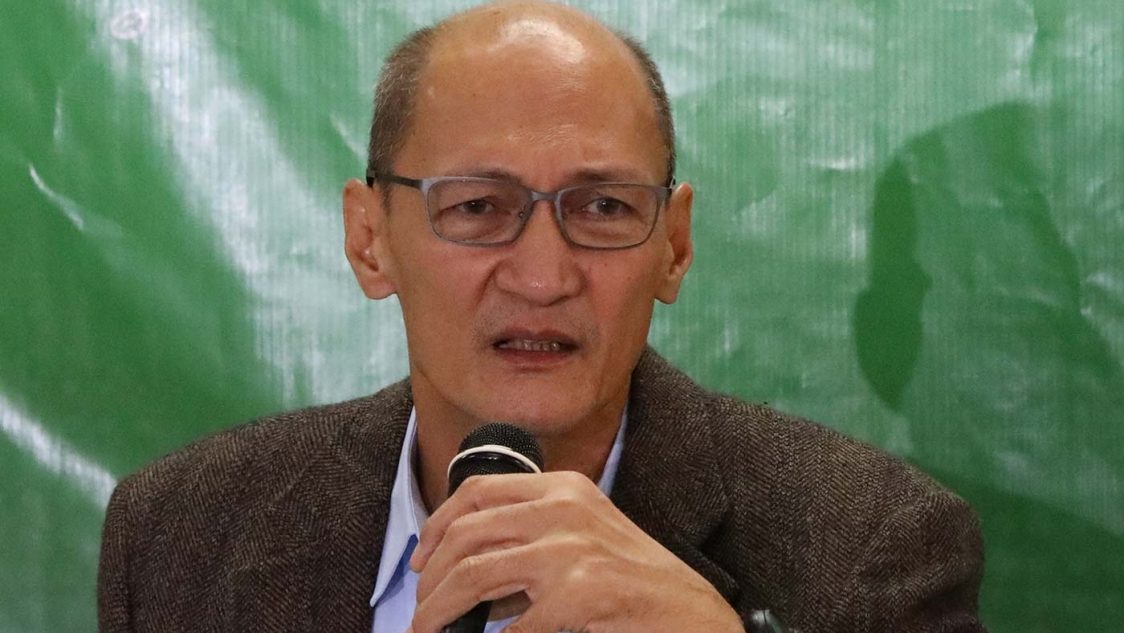SUMMARY
This is AI generated summarization, which may have errors. For context, always refer to the full article.

The Philippine Health Insurance Corporation (PhilHealth) is once again embroiled in a scandal involving allegations of massive corruption even as the country faces a raging pandemic.
The recent controversy was put under the spotlight by the resignation of Anti-Fraud Legal Officer Thorrsson Montes Keith who said he believes there is “widespread corruption in PhilHealth.”
Subsequent Senate hearings then revealed worrisome information – PhilHealth has funds only until 2021 and that its CEO Ricardo Morales allegedly ordered Keith to, among others, “massage” the issue of supposedly overpriced COVID-19 test kits.
The unraveling of the corruption scandal comes a little over a year into Morales’ stint as PhilHealth CEO. He was appointed by Duterte in June 2019, less than a month after he was appointed to the Board of Trustees of the Metropolitan Waterworks and Sewerage System.
The 67-year-old retired army general hails from Davao City, Duterte’s hometown.
The Marcos years
Morales’ career, however, extends even before the Duterte administration. It can be traced back to the years of the late dictator Ferdinand Marcos.
He graduated from the Philippine Military Academy in 1977 and started his military career in Jolo, Sulu.
After his years in Mindanao, Morales served as the aide de camp, or trusted security escort, of then first lady Imelda Marcos.
He was also part of the Reform the Armed Forces Movement (RAM), the group of rebellious military officers who wanted to oust the dictator, and was reportedly part of the team that plotted the arrest of Marcos. (READ: Key players in the 1986 People Power Revolution)
Morales serving as informant of rebel soldiers inside Malacañang placed him in a dangerous spot, which led him to write a farewell letter to his parents in case something bad happened to him, according to a report by a Special Commission in 1986.
In February 1986, Morales was tagged by Marcos as being part of an assassination attempt against his family. He was arrested and presented to the public days before Marcos was eventually ousted through the People Power Revolution.
“I was thinking, whatever happens, I hope it’s going to be quick and painless,” he was quoted as saying about his arrest in a 2011 article by journalist Ed Lingao published by the Philippine Center for Investigative Journalism.
Letters to the leadership
From 1995 to 1998, Morales worked as an executive officer at the Office of the Deputy Chief of Staff of Plans in Camp Aguinaldo. He then briefly became the director of the Army Modernization and Strategic Studies Office from May to September 2001.
From May 2001 to September 2002, Morales served as assistant chief of staff for plans.
He also headed the Army research team which oversaw the development of a Filipino-made Tactical Unmanned Aerial Vehicle, according to a 2002 article published in Newsbreak magazine.
Over the next few years, Morales made headlines a few times for openly calling out problematic issues in the military.
In 2004, Morales consistently followed up with then-Armed Forces of the Philippines (AFP) chief of staff Narciso Abaya about the institution’s investigation on former military comptroller Carlos Garcia after the latter’s son was arrested in the United States for failing to declare $100,000.
According to a November 2004 Newsbreak article by now Rappler managing editor Glenda Gloria and Raphael Martin, Abaya said “Morales has been busy texting me about Garcia.”
On July 15, 2004, Morales wrote a letter to Abaya to formally ask about developments, raising more questions about Garcia. (READ: Gen Garcia: How the big fish got away)
In 2005, meanwhile, Morales was relieved as 404th Army brigade commander after he posted a message online about a 60-room resort in Boracay. The message, critical of the AFP leadership, was posted in an online community composed of PMA alumni.
“How can the 60-room resort in Boracay improve the AFP’s capability to fight? Who determined this priority? We have hospitals without medicine and they spend money for this resort?” his letter was quoted in a 2005 article by the Philippine Star.
“That the top leaders in the AFP, especially the Marine officer who commands (the) Army divisions, allowed this shows their insensitivity to the needs and suffering of the men in the field,” he added.
Morales was later assigned in Bukidnon. He was eventually appointed commanding general of the Headquarters and Headquarters Support Group in Fort Bonifacio in Taguig.
In 2008, at the height of the controversial ZTE deal under the Arroyo administration, GMA News Online quoted Morales as telling troops that “as we listen and have access to what is happening in the political scene, we will keep our opinions to ourselves.”
He retired from the military in 2009.
Post-military years
After retiring, Morales joined the AFP General Insurance Corporation as vice president and general manager. He served from March 2009 to September 2010.
He then moved to the AFP Mutual Benefit Association Inc, where he was president and CEO from March 2011 to September 2013.
In May 2019, Duterte said he would be tapping Morales to head the MWSS amid corruption allegations inside. But the President eventually named him MWSS board of trustee member in June.
Just a few days later in June 2019, Morales was appointed the 11th CEO and President of PhilHealth, the country’s health insurance agency.
Taking charge of an already controversial agency, Morales said he wants to “fix the organization and eliminate corruption,” vowing to “make it a point that our members will renew their trust in PhilHealth.”
Now, after marking his first year on the job, the retired army general is facing the latest in a string of corruption scandals in the embattled PhilHealth. What will happen next? – Rappler.com
Add a comment
How does this make you feel?
There are no comments yet. Add your comment to start the conversation.